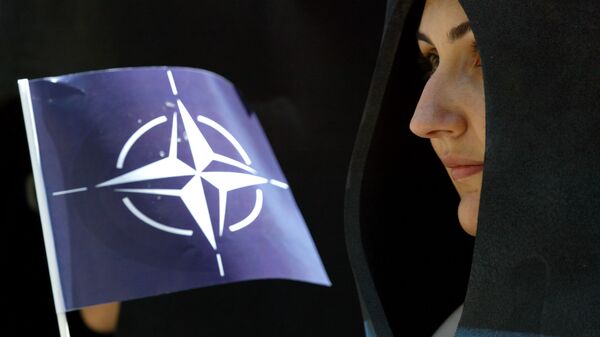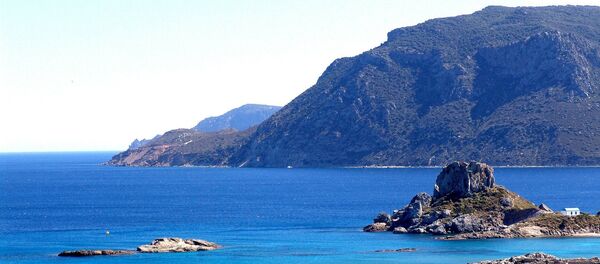The incident occurred in Greek territorial waters near the islet of Farmakonisi in the eastern Aegean. Speaking on television, Greek Minister for Foreign Affairs, Nikos Kotzias, branded Turkish actions a "serious violation of international law."
"Turkey should know we will not always be tolerant, that our response will not only be the one we gave then, it will be much harsher. Our care for the security of our country and its sovereignty is greater than in the past," Kotzias said.
My message to Ankara:We are the best neighbor they could have.I hope they become the same for us.–FM @NikosKotzias @istories_skai #istories
— Υπουργείο Εξωτερικών (@GreeceMFA) February 21, 2017
In a subsequent interview, Deputy Defense Minister Dimitris Vitsas said Greece had no reason to "generate artificial tension," but could not be "indifferent" either.
"Our national independence and territorial sovereignty are red lines for us — there are no gray areas. We are ready and we have a plan for every possible scenario. We are not worried about a heated episode, but that does not mean that we are not prepared for such an eventuality," Vitsas said.
Describing the country as a "nervous" power evocative of 19th century, post-Bismarck Germany, he said Turkey was "making a mistake" in believing Greece to be weak on defense — "international" law was on Greece's side, and it wasn't the "only instrument" in the Greek arsenal.
Commenting on the issue, Murat Bilhan from the Turkish Asian Center for Strategic Studies told Sputnik that now that the territorial dispute between the two nations shows no sign of abating, both sides continue to take bilateral provocative steps.
"The continuing uncertainty surrounding the islands exacerbate the already difficult Turkish-Greek relations, something that can only be resolved at the negotiating table."
Big NATO Spender
Kotzias' hawkish tone may seem at odds with Greece's post-2010 economic strife, which has seen the country's output decline by 25 percent and a quarter of the Greek workforce expelled from their jobs.
However, throughout its nearly decade-long crisis, the country has consistently maintained one of the highest defense expenditures as a percentage of its GDP in all Europe — in fact, it was one of but five NATO members to exceed the "2 percent" target in 2016, and the second biggest spender behind the US.
Moreover, prominent Greek journalist Paschos Mandravelis believes the threatening tenor of Kotzias is far from "empty" saber rattling.
"These issues are not new, or small. Greece has historically spent too much on defense, and Turkey is the reason why. There has been hostility ever since Greece split from the Ottoman Empire in the 1800s. It's strange the two countries both joined NATO in 1951, but this all still haven't been resolved. The territorial claims should be discussed in the Hague," Mr. Mandravelis told Sputnik.
Not a 'Small Quarrel'
Tensions between the two nations have been particularly strained in 2017 due to a number of issues, including the Greek Supreme Court's refusal to extradite eight Turkish servicemen to Turkey to stand trial for their alleged role in the failed coup attempt in July 2016. The Court ruled the individuals could not expect a fair trial.
Turkey has also warned that Greece's repeated military drills on the island of Kos amount to a breach of international law; the 1947 Paris peace agreement confirms the demilitarized status of the Aegean archipelago.
Moreover, Mr. Mandravelis attributes Turkish intransigence to internal turmoil in the wake of the foiled coup — President Erdogan, he said, was cozying up to "ultra-nationalist" elements in the country. He expects the situation to "cool down" following the constitutional referendum in April. Nonetheless, he doesn't rule out a further escalation — and hopes NATO will side with Greece over Turkey.
"This isn't a small quarrel, or just about Greece's defense — this is about securing the European frontier. There is significant upheaval in Turkey presently, and the major conflict on the country's border could end up threatening Europe," Mr. Madravelis said.
65 years ago today, #Greece and #Turkey joined NATO pic.twitter.com/9VtuJs1S6Q
— NATO (@NATO) February 18, 2017
Nonetheless, such hopes may be erroneous, as NATO's Secretary General Jens Stoltenberg recently reiterated Turkey was a solid ally.
"Turkey has expressed, again and again and, most recently in my meeting with President Erdogan, that they are, they are continuing, or they will continue to be a committed NATO Ally and they contribute to NATO operations and NATO missions in many different ways…" Stoltenberg said during a press conference.
If NATO is one big family with the principle of collective defense at its very heart, the ongoing bickering over national security between two of its members surely raises questions, reflecting poorly on the military bloc's name.



